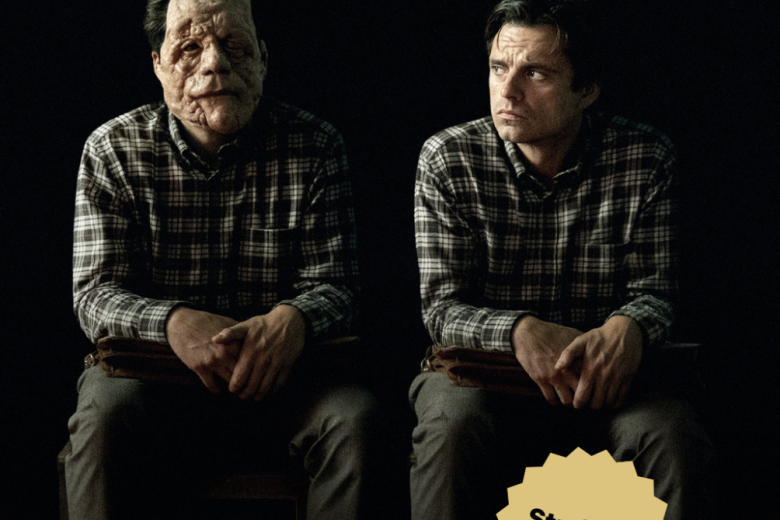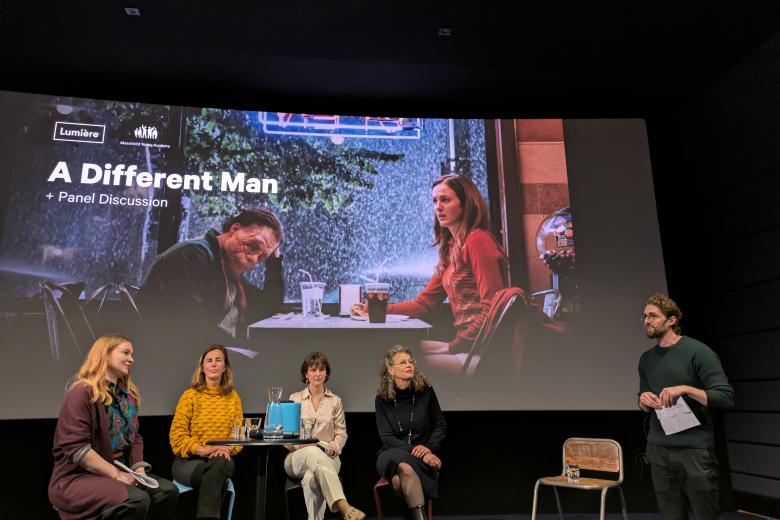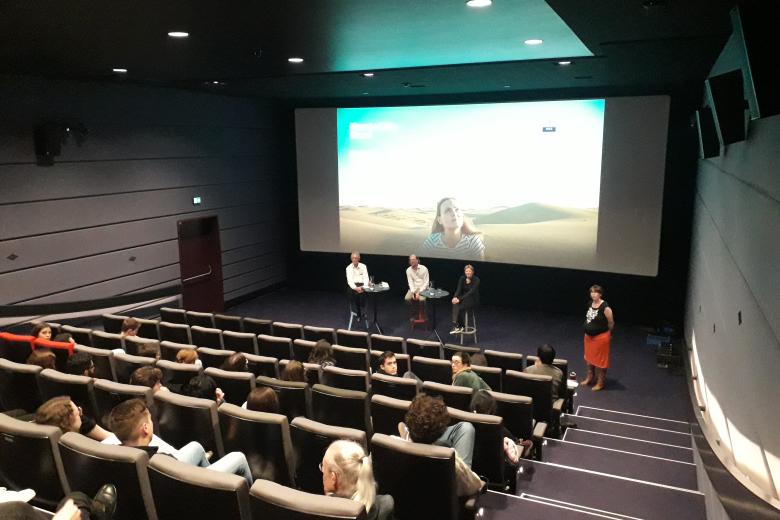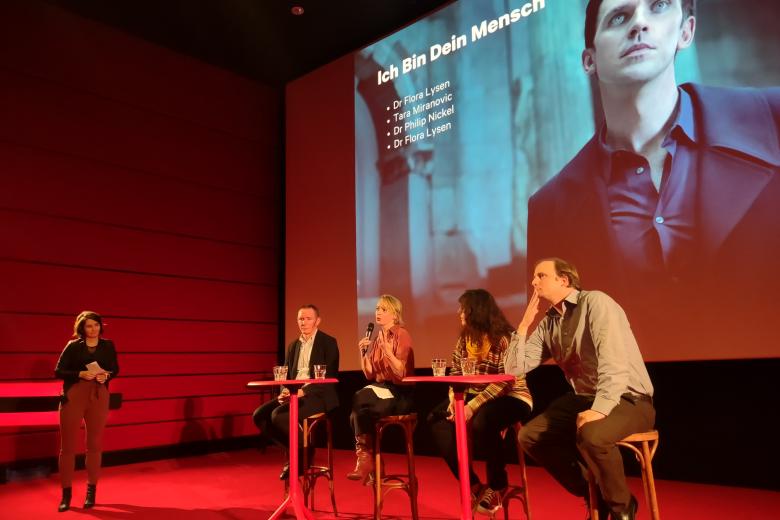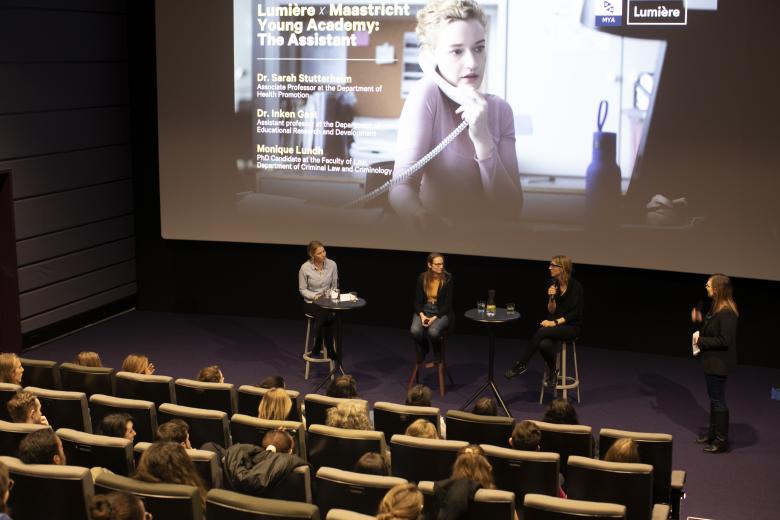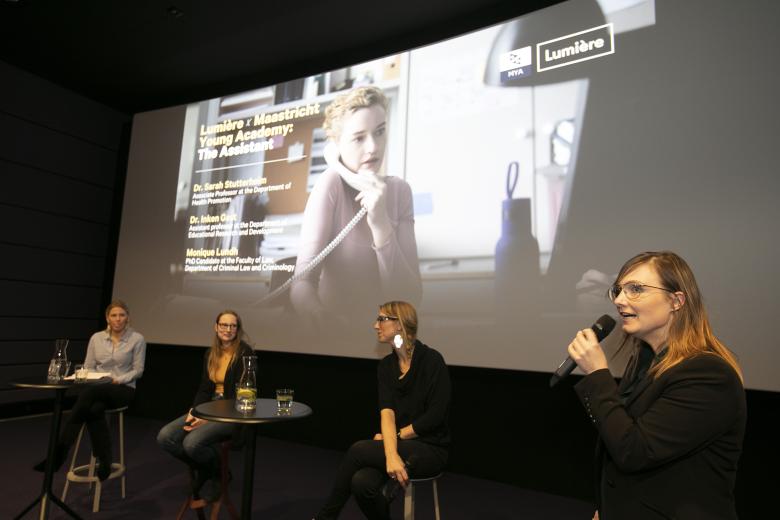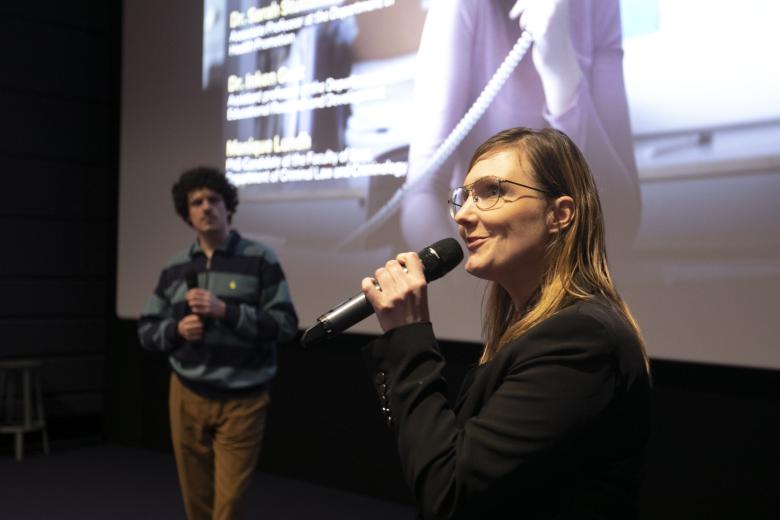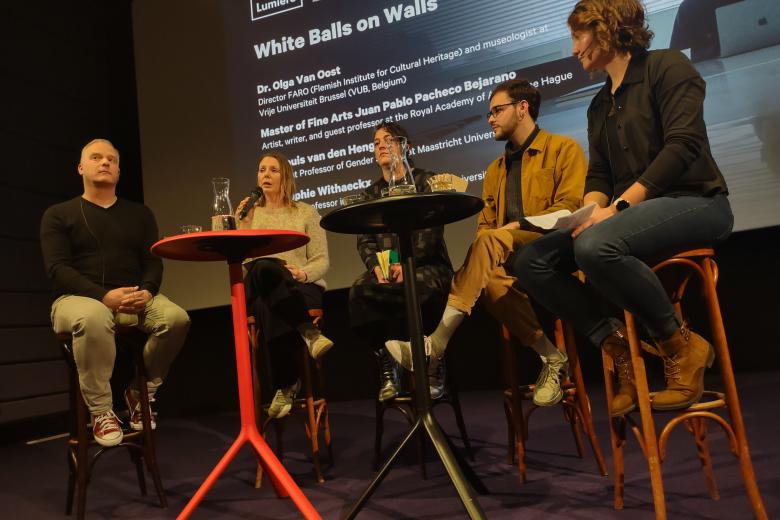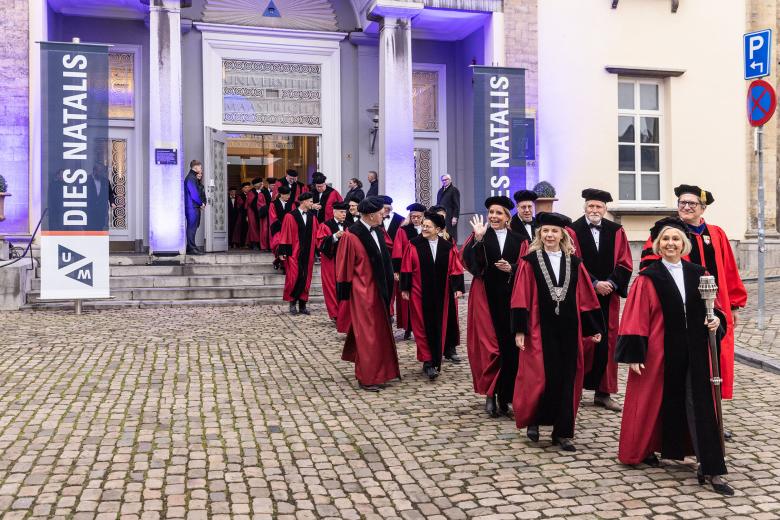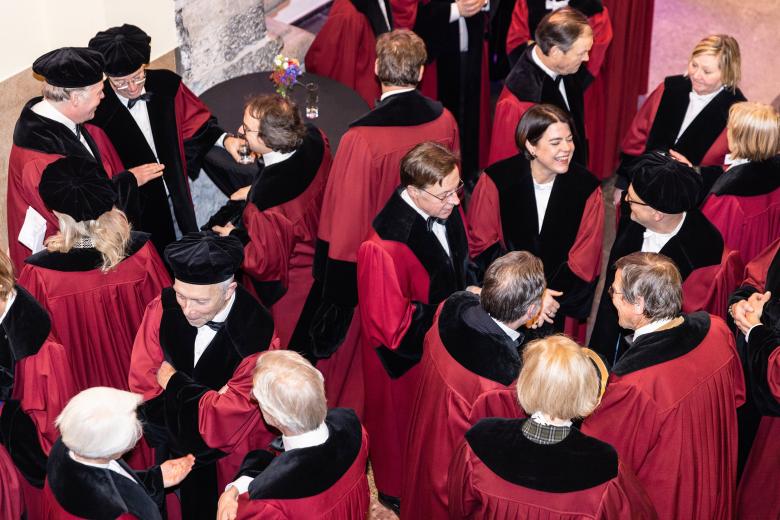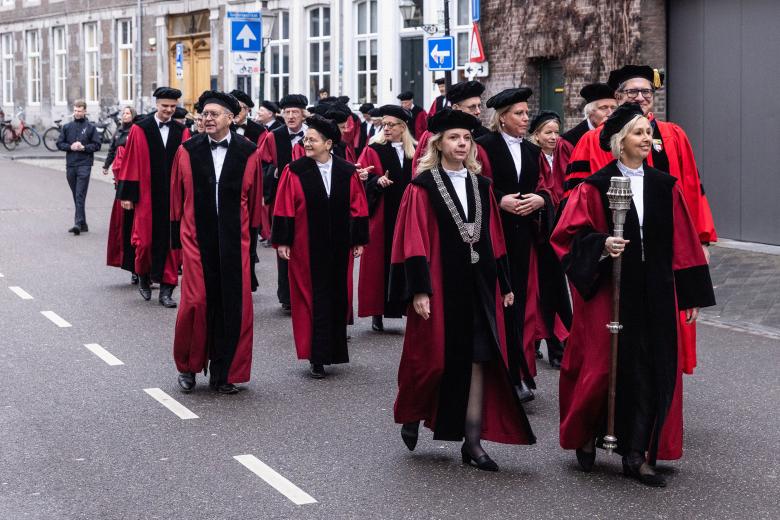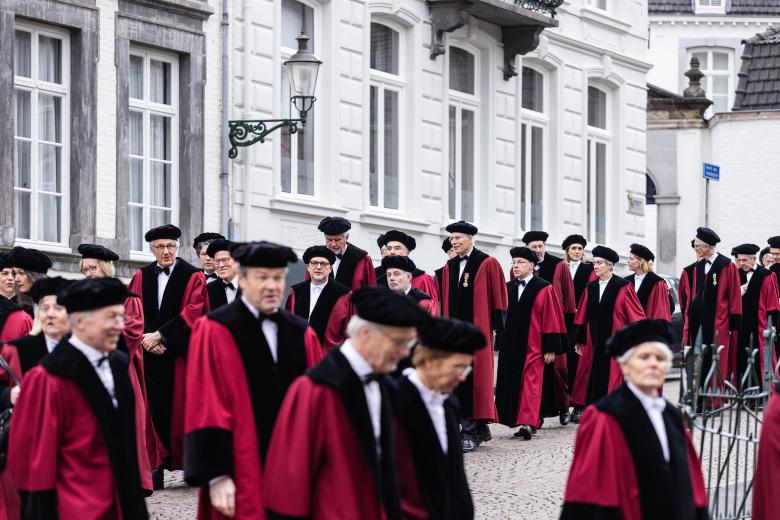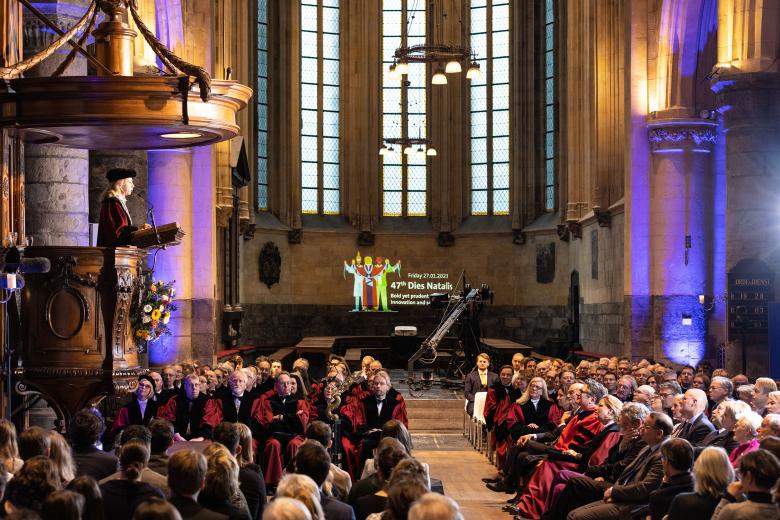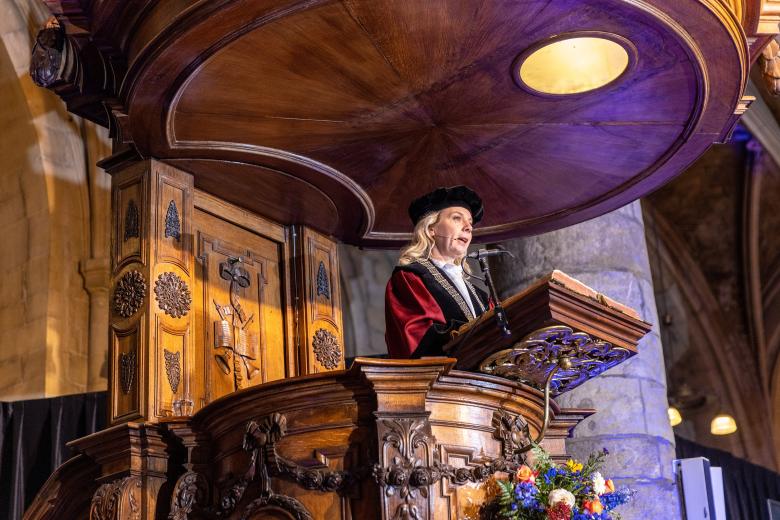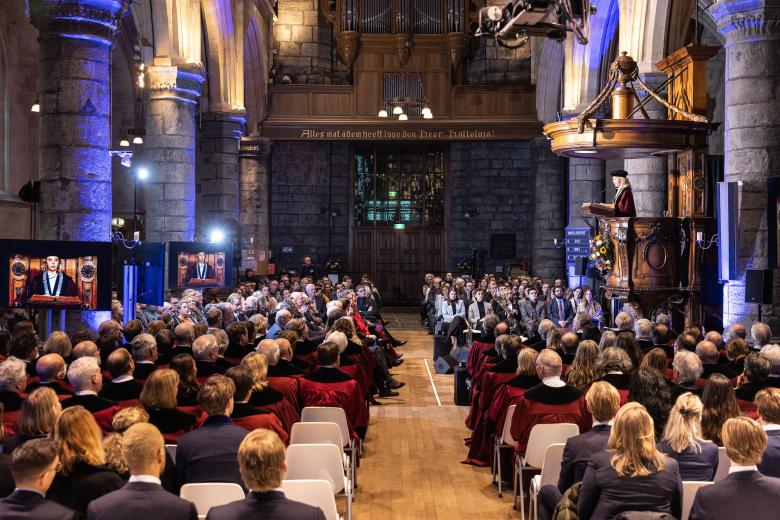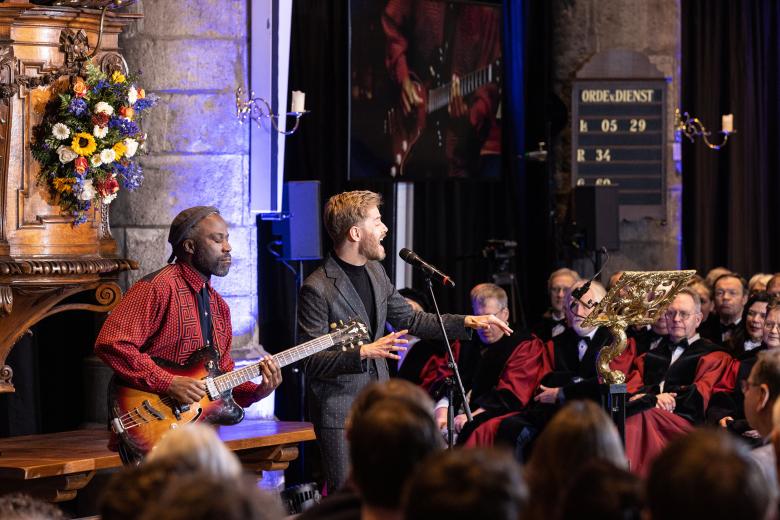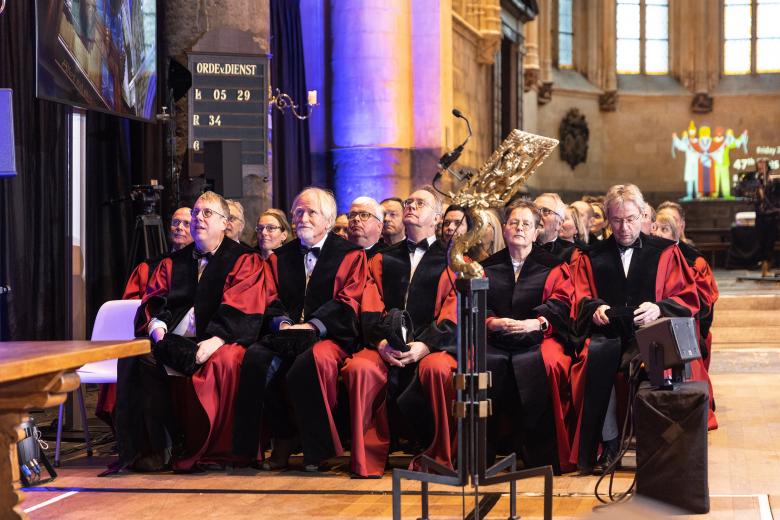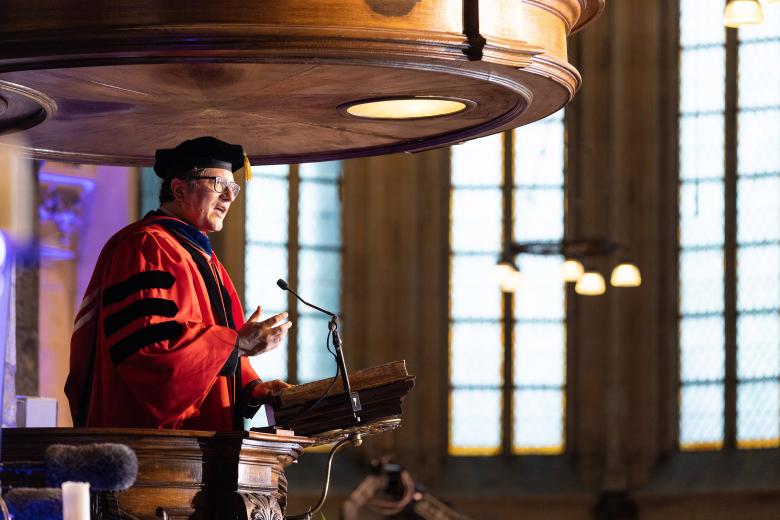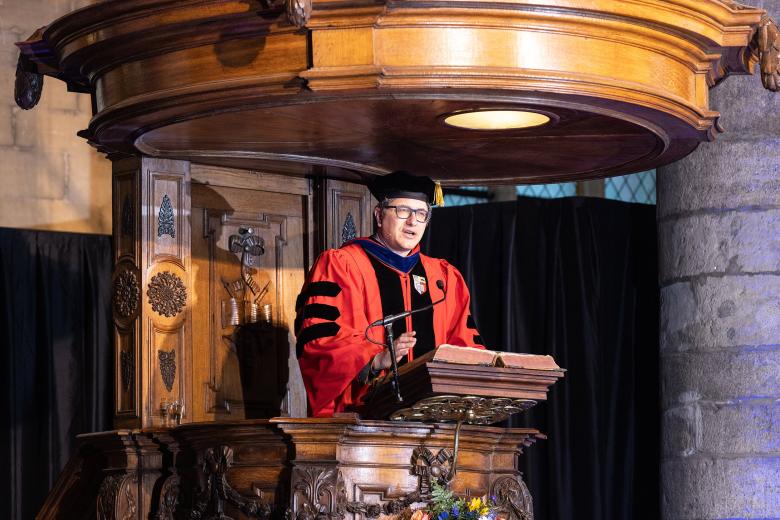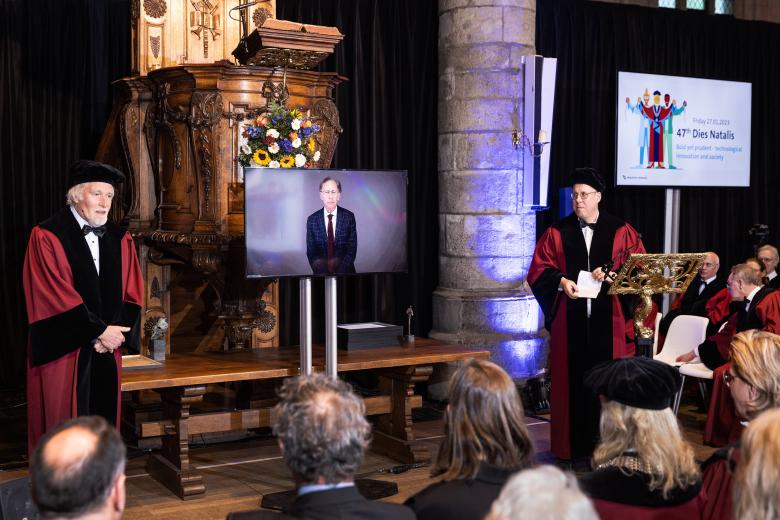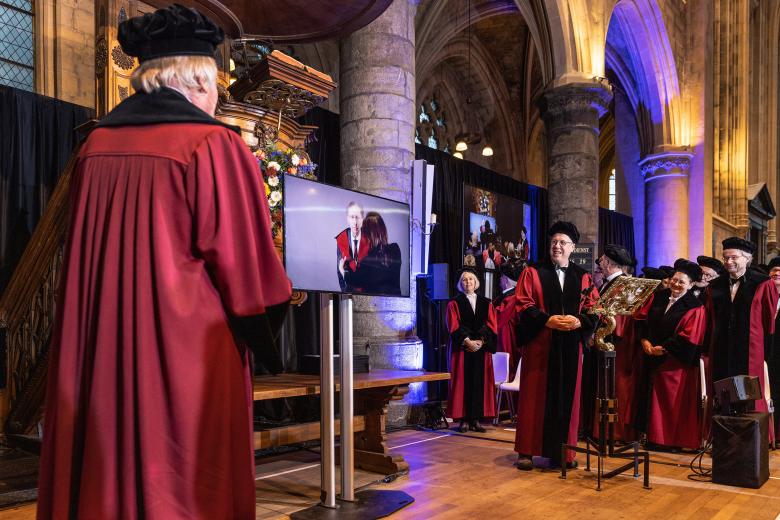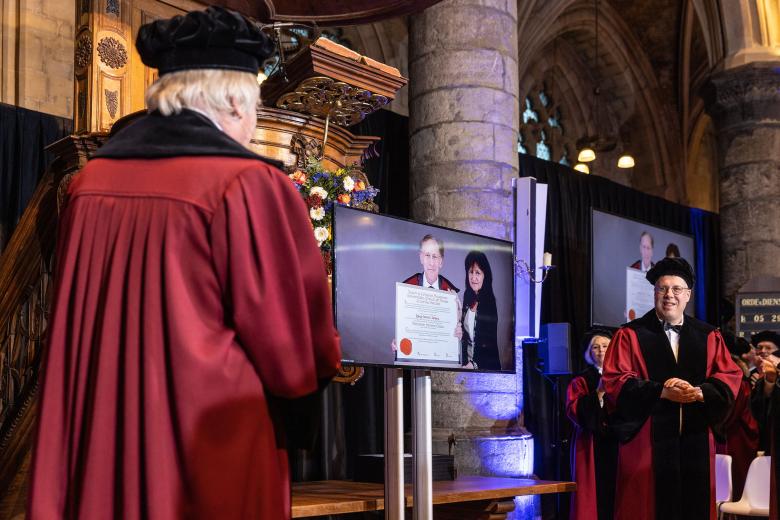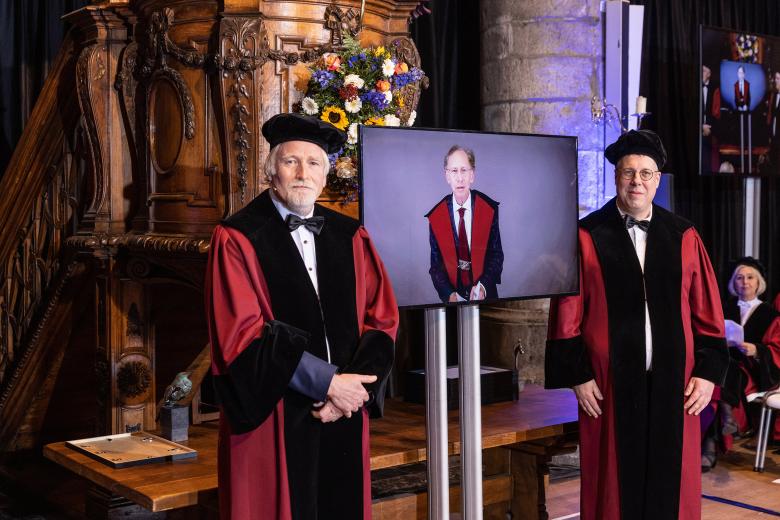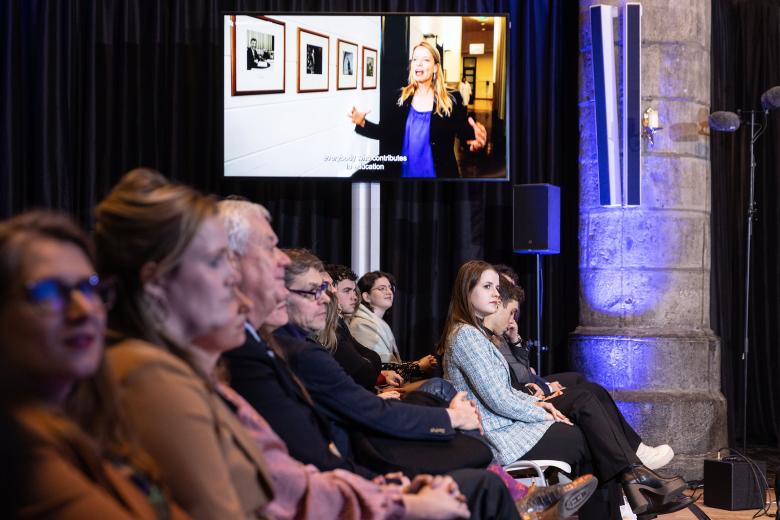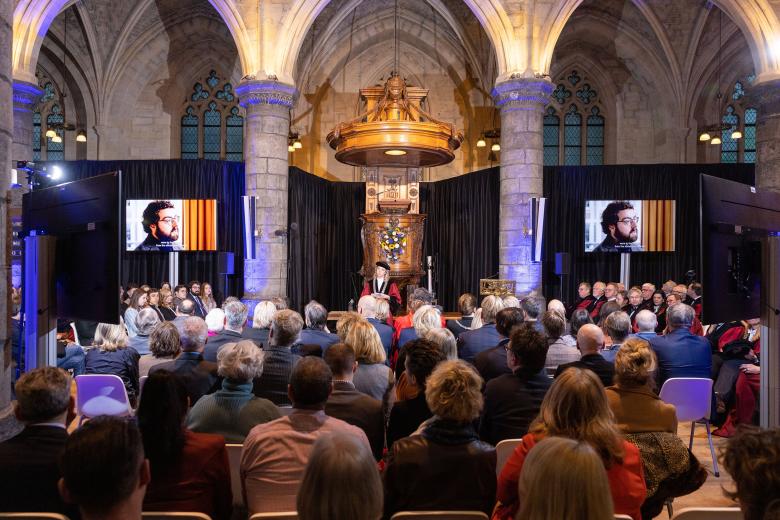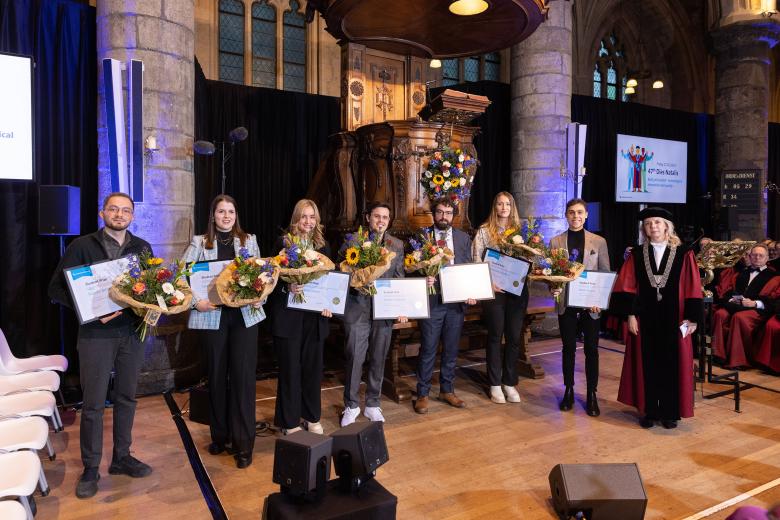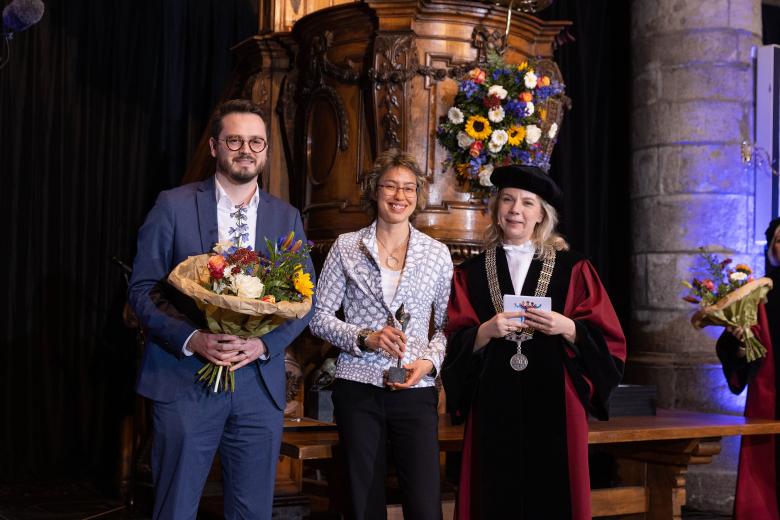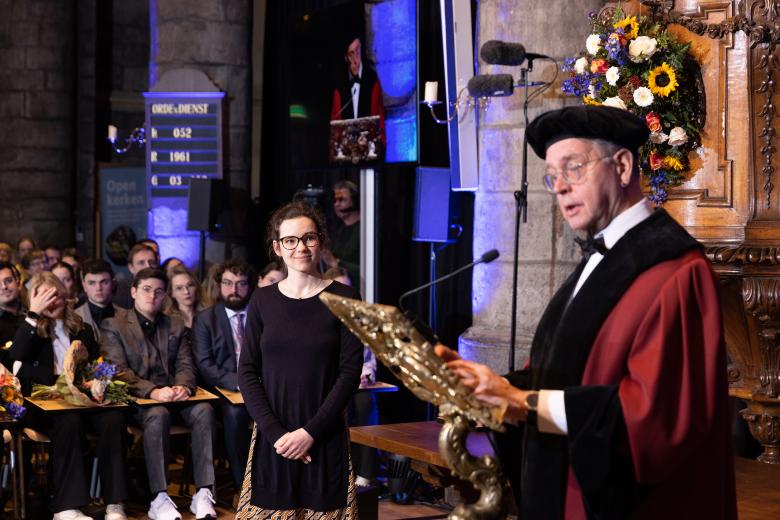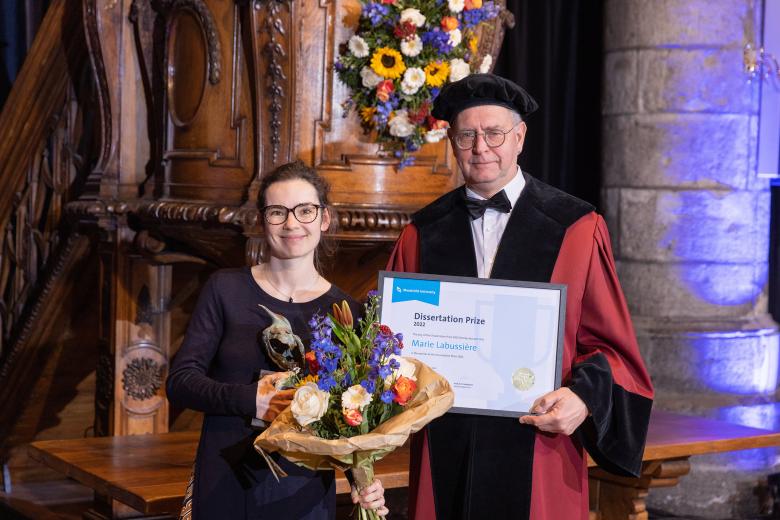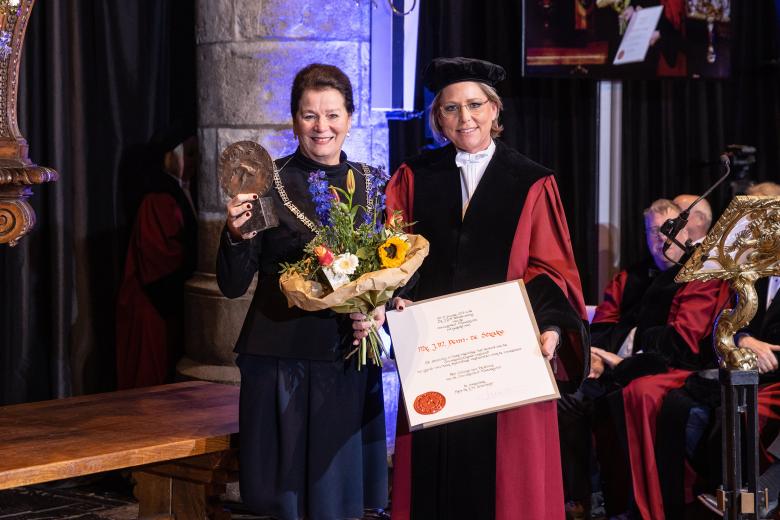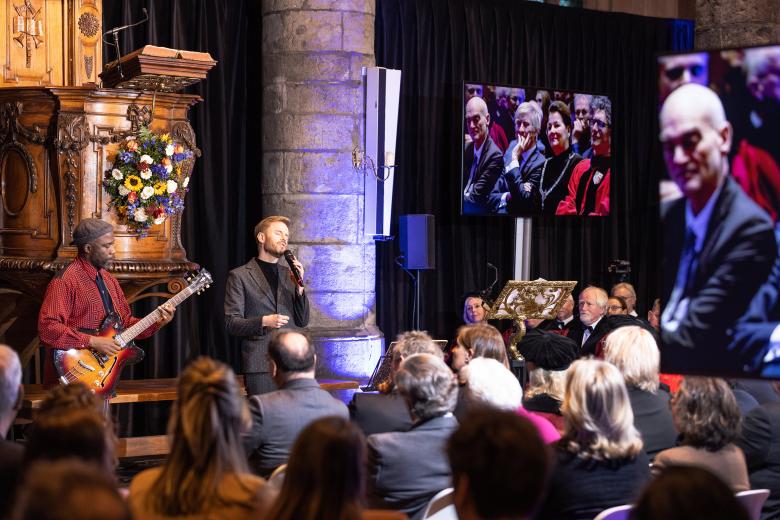A conversation series featuring personal narratives of becoming and being a researcher.
Past events
Bake Your Research
In May 2021, the Maastricht Young Academy ran a 'Bake Your Research' competition on Twitter. For a bit of pandemic era connection, the idea was for the participants to get creative and make an edible version of their research. Some of the competition entries included neuron cookies, microscopic slide biscuits, and a panna cotta brain. Although there were many yummy-looking entries, the overall winner of the competition was PhD candidate Mareike Smolka with her buddha-head-shaped cookies decorated with brain scans – representative of her ethnographic research into the effects of meditation on the brain.
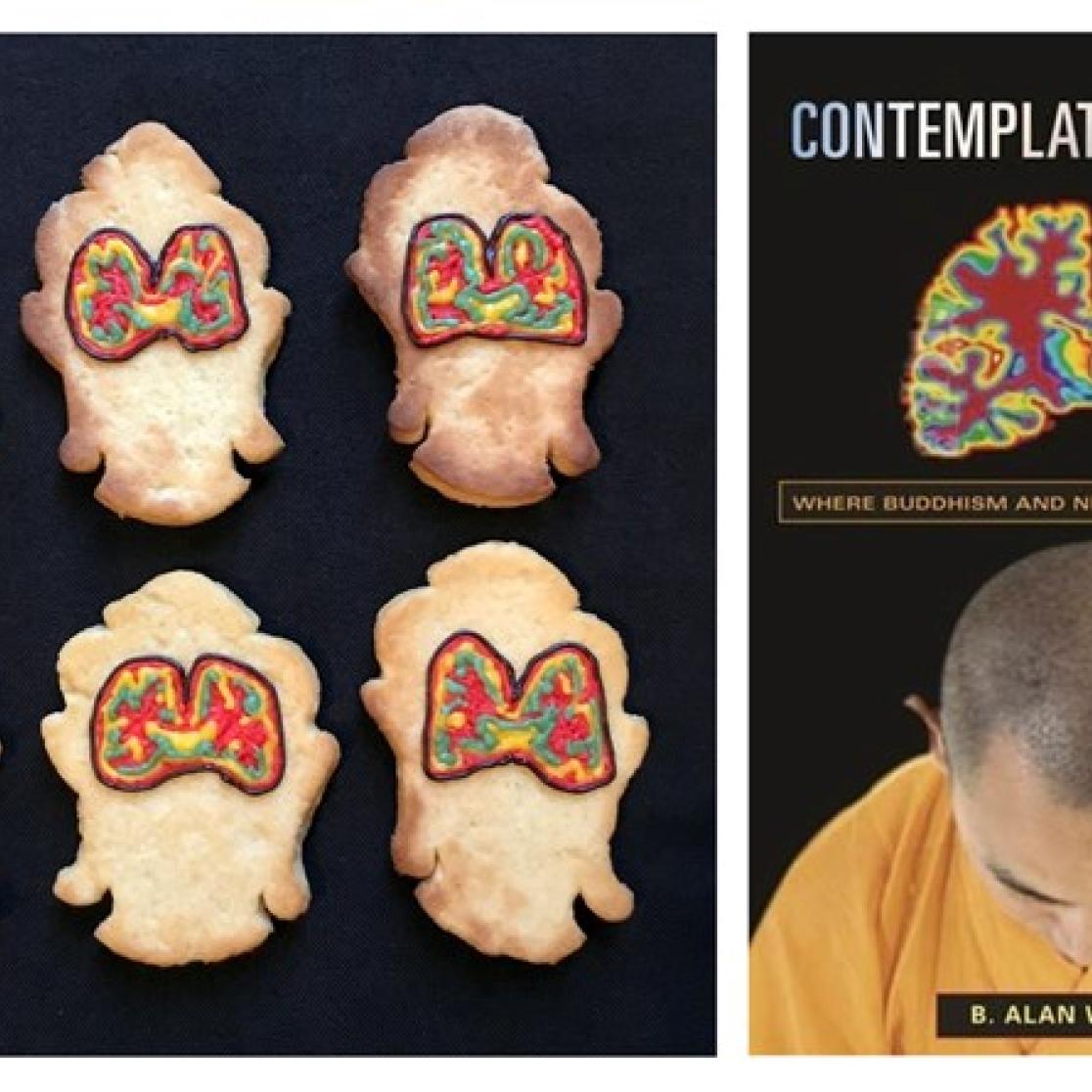
Past events
Intercultural training
From 2020–2022, the Maastricht Young Academy offered a series of practical intercultural training for UM staff. Anyone working with people from different cultural backgrounds will notice that they have particular preferences when it comes styles of communication, timekeeping, giving negative feedback, and hierarchy. The training explored these differences and helped participants navigate different cultural styles in order to facilitate harmonious interaction and smoother productivity.
These small group workshops were led by Nava Hinrichs-Passuto, the Head of Executive Education and Capacity Building in Migration at the UNU-MERIT and the Maastricht Graduate School of Governance.
Active Bystander Training
Imagine witnessing unacceptable behaviour. Think of bullying, (sexual) harassment, belittling, discrimination etc. It’s hard to be the one to speak up. You might be afraid, or you don’t want to be the first to speak up, or maybe others may say you are overreacting. Yet, you know that matters like this can very well contribute to a toxic culture in the workplace and lead to socially unsafe work circumstances.
In collaboration with the Staff Career Center and Female Empowerment Maastricht, the Maastricht Young Academy offered a series of trainings for staff members wishing to contribute to a socially safe work and study environment by becoming an active bystander.
Maastricht Migration Lecture series: Cross-nationally comparative research on racial and ethnic skill disparities: questions, findings, and pitfalls
The third lecture of the Maastricht Migration Lecture series, entitled "Cross-nationally comparative research on racial and ethnic skill disparities: questions, findings, and pitfalls" was given by Prof. Mark Levels on November 25th 2020.
The lecture focussed on the racial and ethnic inequalities in skills and attitudes of children in primary and secondary education between 2000 and 2017, where it is seen that the successful participation of immigrant children and the children of immigrants in societies and labour market of western countries depends largely on their childhood experiences.
Prof. Mark Levels is a Professor of Health, Education and Work at Maastricht University. He is program director of the research program Health, Skills, and Inequality at the Research Centre for Education and the Labor Market (ROA) of Maastricht University, member of the ROA management team, a fellow of the Berlin Social Science Centre (WZB), a fellow of the Graduate School of Business and Economics (GSBE)of Maastricht University, and is a fellow of the Amsterdam Centre for Learning Analytics (ACLA). He teaches macrosociology at University College Maastricht (UCM).
Mark uses quantitative, qualitative and experimental sociological methods to study how individuals’ lives are shaped by government. He leads a large international research consortium that studies how governments can mediate the impact of AI and robotization on work, education, inequality, and welfare in Europe (TECHNEQUALITY). He is also one of the principal architects of the Nationaal Cohortonderzoek Onderwijs (NCO) and was appointed as one of the first national coordinators of the NCO with the Netherlands Organisation for Scientific Research (NWO). The NCO is one of the largest and most comprehensive research efforts on education in the world. He also currently coordinates an international research group that studies individual and institutional determinants of youth inactivity in various countries (NEET).
Maastricht Migration Lecture series: Does Citizenship Matter?
The second lecture of the Maastricht Migration Lecture series, entitled "Does Citizenship Matter?’ was given by Prof. Maarten Vink on October 28th 2020.
Does holding citizenship affect migrants’ life experience and, if so, how? In the lecture ‘Does Citizenship Matter?’, we discussed the controversial and complex relation between immigrant naturalization and life experiences within the host society.
Maarten Vink is Professor of Political Sociology at the Department of Political Science, Maastricht University, the Netherlands. He leads the research project “Migrant Life Course and Legal Status Transition (MiLifeStatus)” funded by a Consolidator Grant of the European Research Council (2016-2021). He is one of the founders and was previously a Co-Director of the Maastricht Center for Citizenship, Migration and Development (MACIMIDE).
Maastricht Migration Lecture series: Migration in Libya: From transit route to containment
The first lecture of the Maastricht Migration Lecture series, entitled "Migration in Libya: From transit route to containment" was given by Dr Katie Kuschminder on September 30th 2020.
The lecture focussed on African and Middle Eastern migration flows to Libya and how the country’s posture toward these migrants have changed dramatically since the 2011 fall of dictator Muammar Gaddafi. While Libya once was a destination for foreign workers drawn by a strong economy, post-civil war, migrants have used the country as a transit point to set off for Europe—though as European borders have hardened since the 2015-16 migration crisis, many have been stranded and contained in Libya through the EU's external action policies. At present, a human rights crisis is enduring in Libya for migrants. This presentation contextualized the changing situation in Libya for migrants from 2011 to the present. The presentation was informed by original interviews conducted with Nigerian and Eritrean migrants that travelled through Libya from 2014-2016 and demonstrated the different situations faced by migrants in Libya.
Dr Katie Kuschminder is an Assistant Professor at UNU-MERIT / Maastricht University. Katie's main research interests are in the areas of return and reintegration, irregular migrants journeys and migration governance. Katie has led migration projects for the Dutch Ministry of Foreign Affairs, German Development Cooperation, ILO, IOM, NWO and WODC. Currently, she is a Work-Package Lead on the H2020 Admigov project. In 2016 she was awarded a Rubicon Grant from the NWO and completed a two-year fellowship at the European University Institute.
Numbers don't lie: lecture by Ionica Smeets on 25 March 2019
At the invitation of the MYA, mathematician and professor of science communication, Ionica Smeets, gave a lecture on March 25th 2019 called "Ionica Smeets, Numbers don’t lie, in which she took the audience on a journey of discovery through the world of misleading figures and graphs.
Read the interview with Ionica Smeets.
Watch the summary of her lecture (video).
Open letter on "Everyone (iedereen) Professor"
MYA believes that reserving the title "Professor" for only those in the latest stages of their career and not allowing it to be used by Assistant or Associate Professors is out of place in international academia and serves little positive purpose. Read our open letter about the topic here.
Join the movement towards a new academic citizenship
MYA has worked with our university’s senior management to call for more emphasis on academic citizenship. Part of this conversation is the need to change leadership training at our university as soon as possible to align it with these new perspectives on academic citizenship. Click here to read the call to join the movement towards a new academic citizenship.
Summary of the debate on R&R
On 14 January 2022, MYA hosted a debate on R&R between two signatories of letters in favour of and opposition to this new policy. Prof Hanneke Hulst (Leiden University) and Prof Floris de Lange (Radboud University) helped us dive into the relevant topic of the R&R revolution.
The debate mainly focused on the issues of current forms of evaluation in research, but also the evaluation of teaching, leadership and impact was discussed.
Prof Hanneke Hulst stated:
- That R&R is evolving.
- Because we are currently in a period of change, we need to practice, learn from past mistakes and include richer qualities of definition beyond quantifiable metrics when trying to develop a more adequate system.
- She stressed that R&R aims for people to make fitting decisions and enhance the potential of their research and work, doing so by rewarding excellent academics in all fields and disciplines.
Prof Floris de Lange argued:
- The main issue in R&R lies within the scientific indicators that make it hard to evaluate and compare people with different aims or skills.
- By stressing the importance of evaluating research potential, he highlights that new, more efficient methods of evaluation need to be developed.
- People with different kinds of expertise are needed and to be heard, as variety plays a pivotal role. However, when using metrics there is little room for diversity.
- We need more objective criteria so that everybody is allowed to be part of the conversation and to choose their own way.
All in all, there is an urgent need for measurements that value all skills and potential of academics. Only if we integrate efficient indicators, can we build a fair Recognition and Rewards programme and provide equivalent opportunities for all academics.
Position paper on Recognition & Rewards
At the MYA we are actively taking part in the discussion on the R&R policy. This is an initiative that is widely supported. To voice our support, but also to offer critical reflections to support further development, the MYA published a position paper in October 2021. In the paper, we provide insights from the perspective of the young academic and offer essential questions that we think should be part of the discussion.
Previous awards
2024-2025: Sven Hildebrand (FPN) and Thijs de Rijk (FHML) - Clearing up incontinence: Developing optical tissue clearing techniques to unravel the 3D neuroanatomy of bladder control in the human spinal cord.
2023-2024: Janny Stapel (FPN) and Chang Sun (FSE) - Developing and Validating a Tool for Distinguishing Qualitative from Quantitative Differences in Human Movements, a Data-Driven Approach.
2022–2023: Giuditta Perversi (FSE) and Niloofar Tahmasebi (FHML) - New metallorganic frameworks for CO2capture – a tailored approach to improvement.
2021–2022: Amir Fard (FSE) and Giulia Piccillo (SBE) - The impact of repeated exposure to rumours on the belief system.
PBL as core value...
PBL has been a core value ever since the university was founded. It is reflected in all aspects of UM, from the infrastructure to our flexible support systems and the content of our teacher professionalisation programmes (CPD and UTQ). The core values of PBL are – and will remain – constructive, collaborative, contextual and self-directed (CCCS). Through EDLAB, our Centre for Teaching & Learning, we are constantly working to further develop the PBL approach, particularly by enriching our education with digital technology.
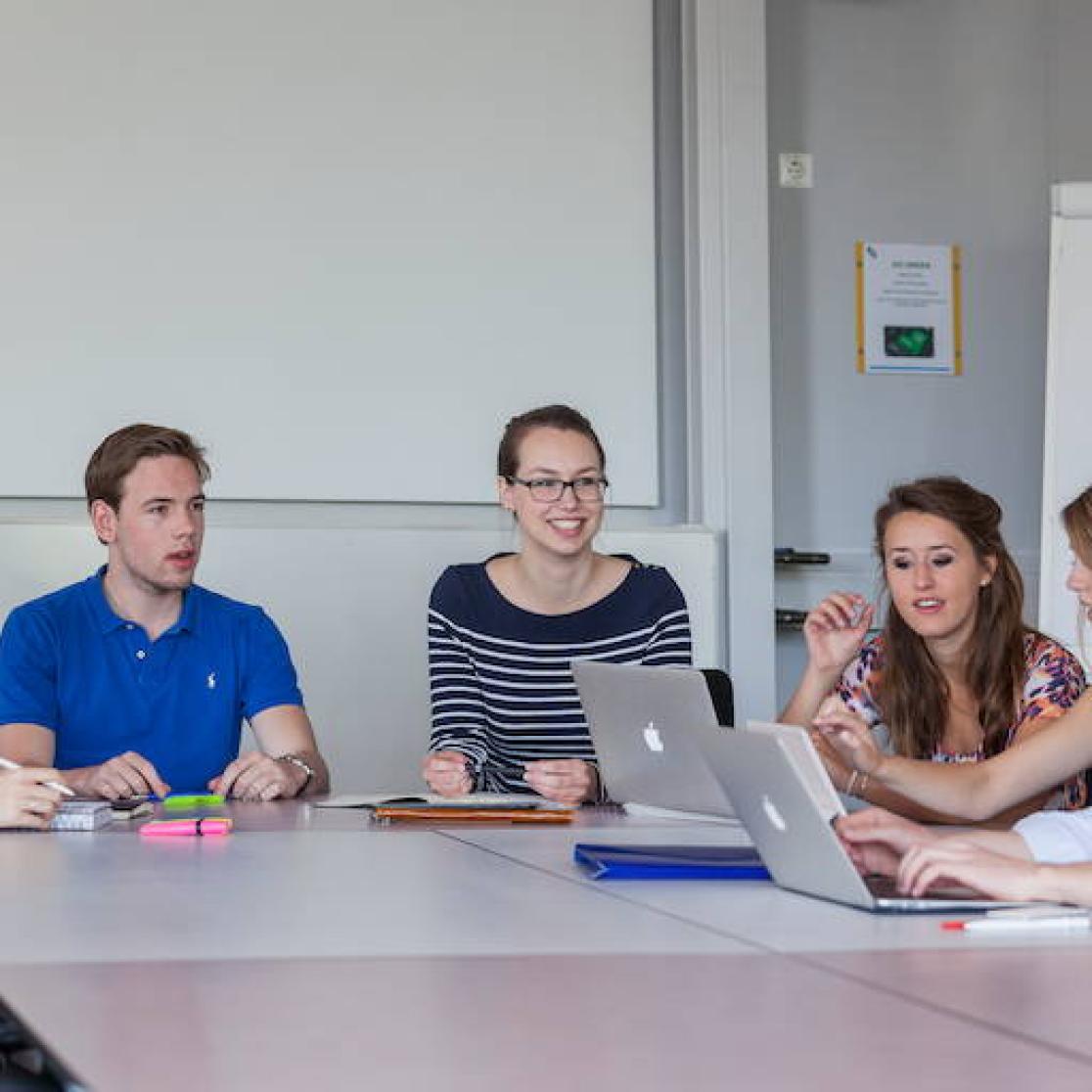
… supplemented by technology
The amalgamation of PBL and technology gives rise to the concept of technology-enhanced education. This involves using technology to achieve the intended learning outcomes in an effective, efficient and appealing manner aimed at flexible and adaptive education. Examples include the use of blended learning and the hybrid virtual classroom. We are facilitated in this effort by Canvas (our learning management system) and through experimentation with innovative hardware, such as devices for virtual and augmented reality (VR/AR) and specially equipped spaces for digital collaboration (active learning classrooms).
Enriching our education through technology is not an end in itself. Our education is campus-based: we consider academic and social connection a prerequisite for optimal learning and the student experience. Nonetheless, the combination of face-to-face and technology-enhanced education opens up a space for diverse educational formats. UM has frameworks that help educators determine which technology could be used, when and how.
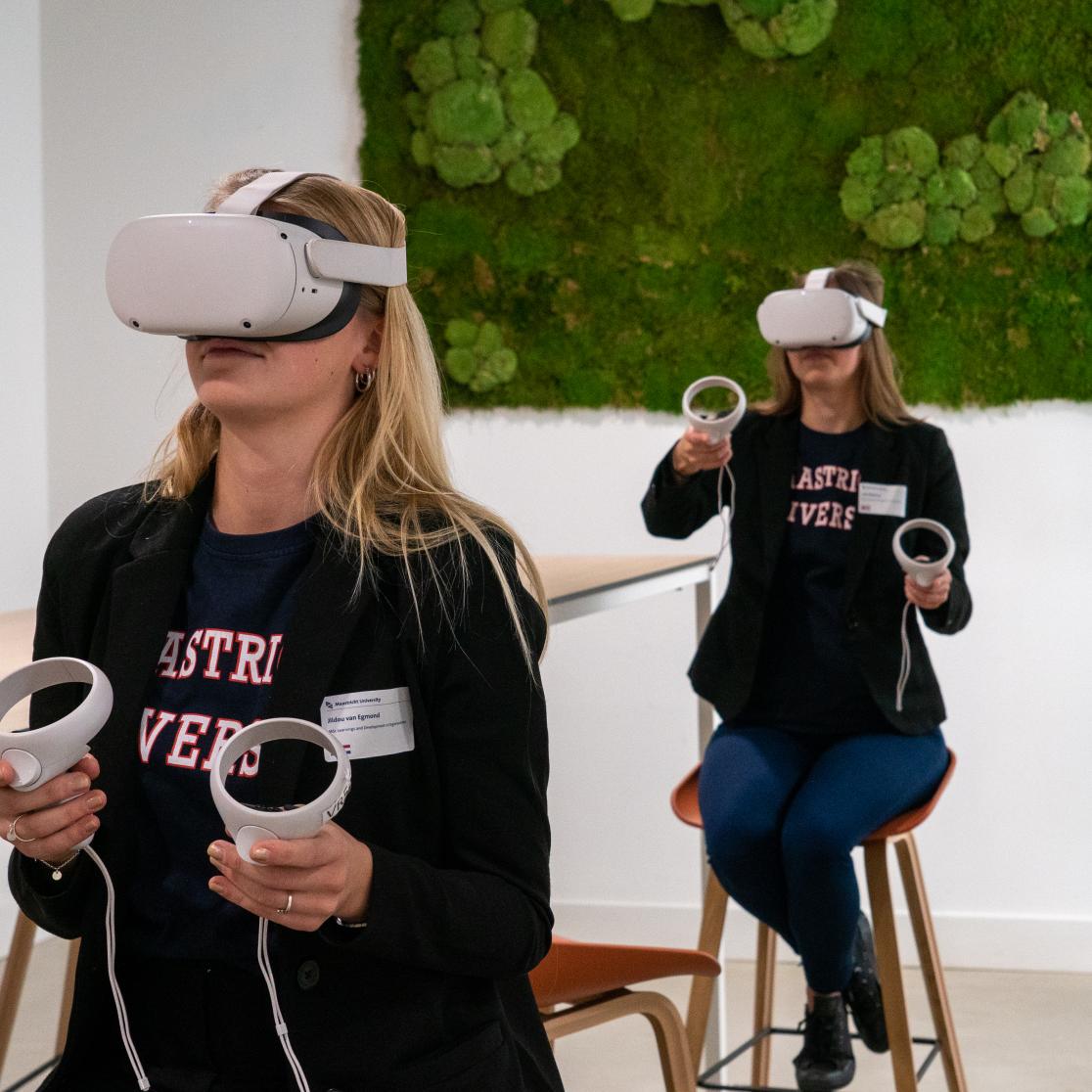
Further educational innovation
We are constantly conducting research focused on education innovation under the banner of EDLAB, which brings together educational researchers from different disciplines and faculties. Naturally, lecturers play a crucial role in technology-enhanced education. They are facilitated in their daily work by good information provision, teacher professionalisation initiatives (including attention to digital literacy) and an efficient quality assurance system. Also indispensable are technologies that promote independent study by making materials and resources available to students when needed. We are investing in a learning environment and a teacher portal that provide insight into students’ progress, make recommendations to optimise their studies and support them with tailored follow-up activities. To this end, we are working on a virtual academic environment for both students and staff.
Education at UM flourishes when supported and facilitated by a quality assurance system that draws on reliable data and analyses. At the same time, it is essential that our education logistics – a crucial factor in our small-scale approach – continue to develop. This calls for harmonisation, simplification and transparency, three core values for which we have already laid strong foundations with the ITK and CeQuInt accreditations. In the coming years, we will intensify our efforts in this area.
Source: UM Strategic Programme 2022-2026
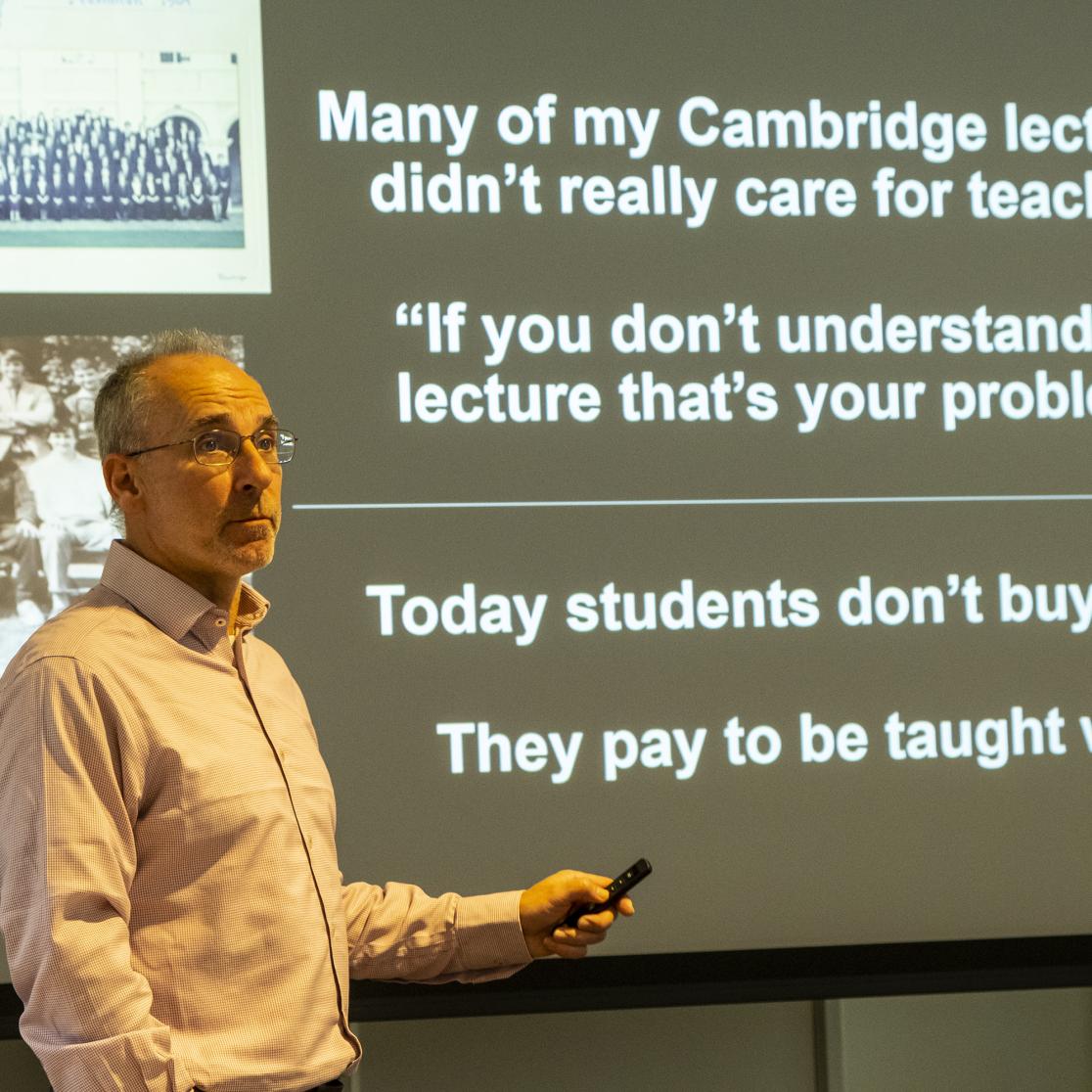
Past events
7 October 2024
The documentary “Oeconomia” researches the link between money creation, debt, and inequality. It puts the question of how money creation works on the table. And shows in the process that some of the leading economists and financial professionals have difficulty explaining it. In its short introductory comments after the film, the panelists (Anne Kervers, Dr. Christoph Rausch, and Prof. dr. Mark Sanders) agreed that the current system of money creation is problematic, because it is inhibiting our response to the climate crisis, it is inherently unstable, and benefits mostly the wealthiest. A lively exchange with our audience ensued: What alternatives do we have for the current system of money creation? How should we measure growth? Why is money creation such an complex subject? The panelists offered their views which range from using the existing architecture to serve a wider public to demanding a more democratic organization of money creation.
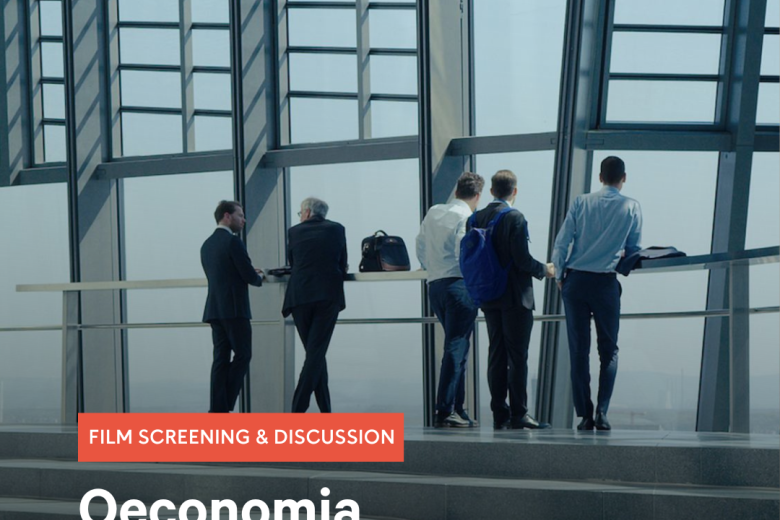
6 May 2024
On Monday evening 6 May 2024, the fourth and final MYA x Lumière movie night of the academic year took place. We screened Eternal You, a documentary about Artificial Intelligence (AI), grief, and the promise of ‘digital immortality’. In the documentary, grieving people ‘talk’ to loved ones who passed away via chatbots created with generative AI (so-called 'thanabots'). Furthermore, the documentary makers follow CEOs of start-ups that try to bring the dead back to life, for instance by creating avatars of the deceased with AI. The movie was followed by an interesting panel discussion led by Dr. Katleen Gabriels (MYA member and Associate Professor of Philosophy). Our guests were Dr. Ellen Dreezens, Psychologist (expert in loss and mourning), artist, and teacher at University College Tilburg, Dr. Kris Goffin, Postdoctoral researcher in philosophy of cognitive science (including AI) at Maastricht University, and Prof. Sally Wyatt, Full Professor of Digital Cultures at Maastricht University.
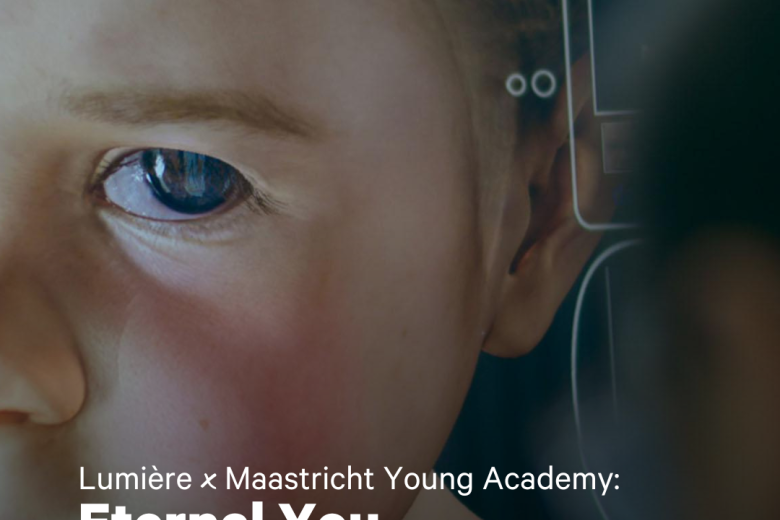
23 October 2023
In collaboration with IHLIA LGBT Heritage, Vasiliki Belia (PhD candidate)
A documentary about the history of comics by and about LGBTQ people in the USA. It focuses on the career and lives of five pioneers of queer comics, Alison Bechdel, Howard Cruse, Mary Wings, Rupert Kinnard and Jennifer Camper, and it’s built around interviews with them and shorter vignettes of younger LGBTQ comics artists who reflect on the older artists’ work and the influence it has had on them. The film gives us glimpses of the broader historical context in which these artists came of age and shows the interaction of this context with the work they created, how the comics represented LGBTQ lives and struggles and the role they played in strengthening the LGBTQ community’s resilience and emancipation.
The film followed a panel discussion with Christin Höne, Assistant Professor in Literary Studies, Sara De Vuyst, Assistant Professor of Contemporary Visual Culture, and Vasiliki Belia, PhD candidate in the project “Redrawing feminism: graphic narrative engagements with the feminist past” and a Q&A session with members of the audience, chaired by Lotte Lemmens, Assistant Professor in Clinical Psychology. Some of the themes addressed in this lively conversation were: comics as a space of freedom for artistic experimentation and for self-definition, the connections between the history of comics and that of LGBTQ activism, intergenerational solidarity and the importance of knowing the history of social movements.
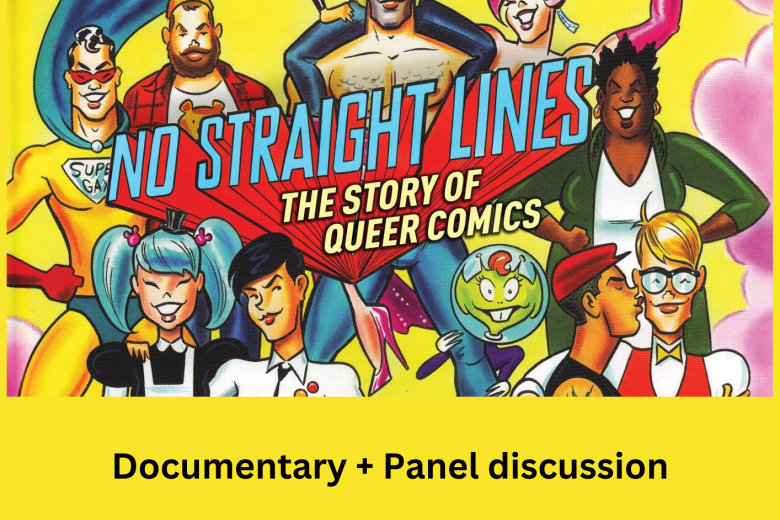
22 May 2023
Panelists:
- Dr Andreea Nastase, Assistant professor in Public Policy at FASOS
- Dr Marina Serrat Romani, Assistant professor in the department of tax law at the Faculty of Law
- Dr Esperanza Buitrago Diaz, Senior researcher at the Maastricht Centre for Taxation.
This documentary on capital flight and tax evasion is a crystal-clear, educational, humorous and shocking plea about the favourite sport of the super-rich. The screening was followed by an interactive panel discussion. Taking the audience’s questions and remarks into consideration the event ended with further exchange and drinks at Lumière’s bar.
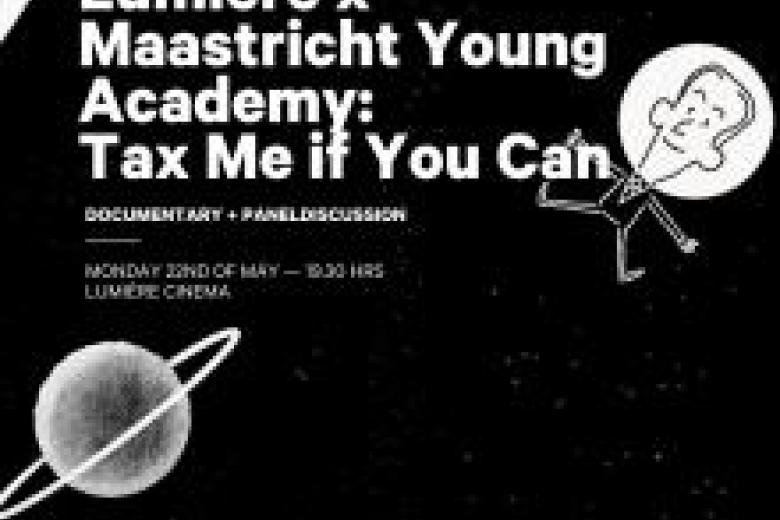
27 February 2023
Panelists:
- Dr Olga Van Oost, director of FARO and museologist at Vrije Universiteit Brussel
- MFA Juan Pablo Pacheco Bejarano, artist, writer, and guest professor at the Royal Academy of Arts at The Hague
- Dr Louis van den Hengel, Assistant Professor of Gender Studies at UM
- Prof Dr Emilie Sitzia, Special Chair at the University of Amsterdam (Word and Image) and Associate Professor of Cultural Education at Maastricht University.
The screening was very well attended and attracted a broad and diverse audience. The film was a thought-provoking documentary following the team of the Stedelijk Museum in Amsterdam, reflecting on the struggles of historical and cultural institutions to strive for more diversity.
After the film, a panel discussion took place. Among other questions, we discussed the notion of 'artistic quality' and whether it is a social and ethical category rather than an aesthetic one, the role of the public in driving this debate, and the idea of meritocracy. The audience also asked several questions, and as always, discussions were further continued at the bar around a drink.
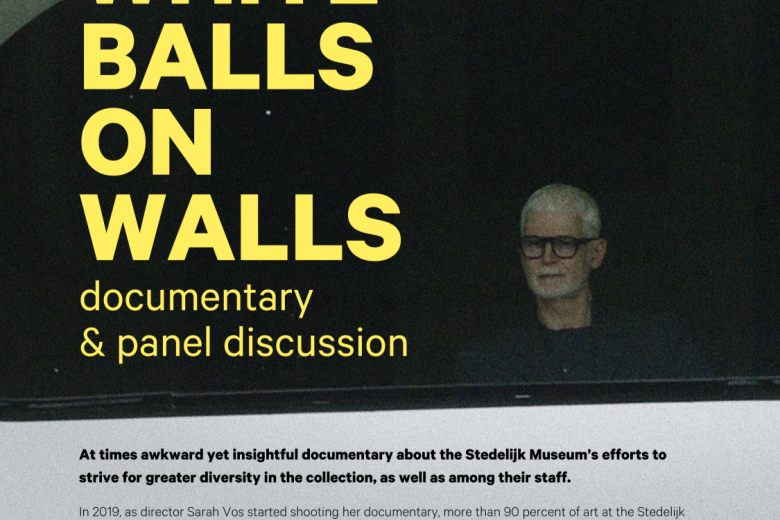
7 November 2022
Panelists:
Experts in cultural analysis of science and media, philosophy of technology, digital society and AI.
- Dr Flora Lysen
- Dr Philip Nickel
- Tara Miranovic
- Prof Mark Winands
The film is a witty tragicomedy about artificial intelligence, happiness, and relationships. Funny and thought-provoking, the event was well-received, and the night was a success with around 120 tickets sold. The screening was followed by a panel discussion. We addressed questions like what it means to be human, the reciprocity of humans learning from machines and vice versa, whether we are happy when our desires are fulfilled, and how realistic such an AI may be. The discussions continued at the Lumière bar.
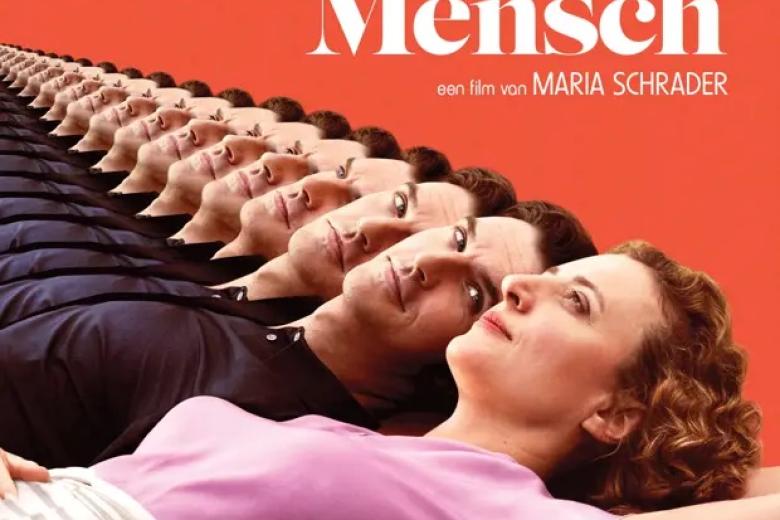
16 May 2022
Panelists:
- Prof Wiebe Bijker
- Dr Clemens Driessen
- Prof Sjaan Nederkoorn
Progress in science requires funding, and funding always comes with political interests. How to Kill a Cloud is a story about the tension between advancing the real-world impacts of science and the political and ethical challenges posed by trying to get results. Our panel discussion explored questions like power interests and their effects on science funding, the pressure to deliver concrete, positive results vs the objective to create ‘good science’ and more broadly the life and struggles of research life.
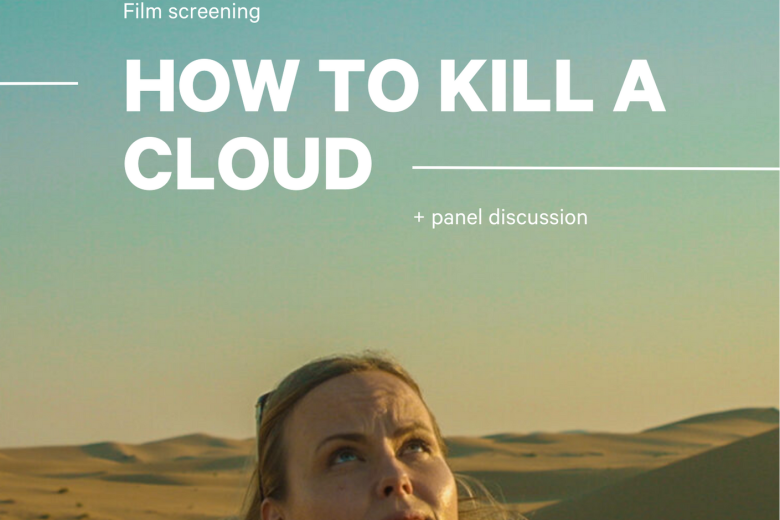
21 February 2022
Panelists:
- Dr Sarah Stutterheim
- Dr Inken Gast
- Monique Lundh
The movie provided a searing look at the life of a powerful executive’s assistant who grows increasingly aware of the abusive cycle from employers that threatens every aspect of her position. The movie portrayed an example of how a person trying to do the right thing, while also trying to succeed professionally, can become complicit. The panel discussion that followed stressed the importance of healthy relationships between colleagues and managers for one’s well-being. Through audience engagement, it was highlighted that structural support in policy and law and the need for confidential advisors play a pivotal role in achieving well-being in the workplace.
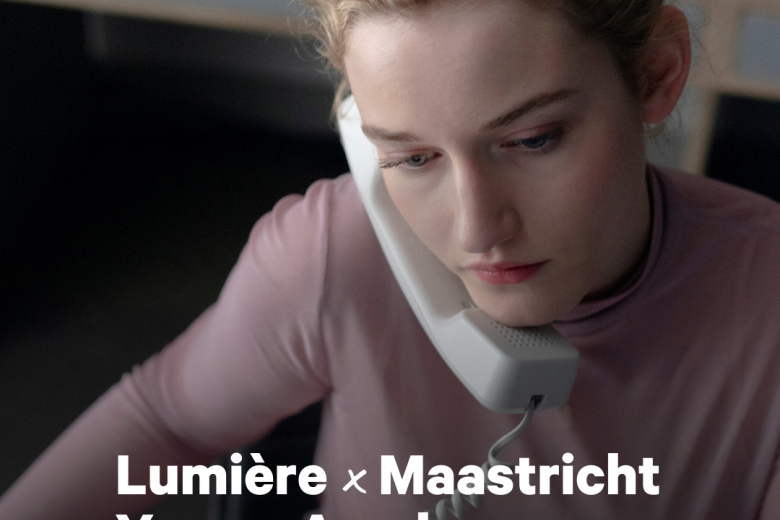
30 November 2021
Panelists:
- Lisa Brüggen
- Dr. Leo Köhler
- Prof. Dr. Pamela Habibovic
The documentary provides an insightful and emotive narrative of the experiences of women scientists in their fields of work. The film drew on the experiences of the older generation of women in STEM, who advocated for the equality of representation, pay and working space for women in science, where these factors were better for their male colleagues at the time. Although these measurable aspects have somewhat changed in some contexts, contemporary women in science, and particularly women of colour, are still subjected to hardships - from unwanted sexual attention and harassment to subliminal exclusion and unsolicited critique.
The screening of the documentary was followed by a panel discussion with Lauren Wagner as the moderator, where the personal experiences of the speakers about the film were shared and ways forward for women in science were discussed. The overarching narrative of the documentary and the panel discussion pointed toward making the sciences increasingly intersectional and equitable for greater inclusion of the next generations of (women) scientists. Food for thought was left with all the attendees of the event.
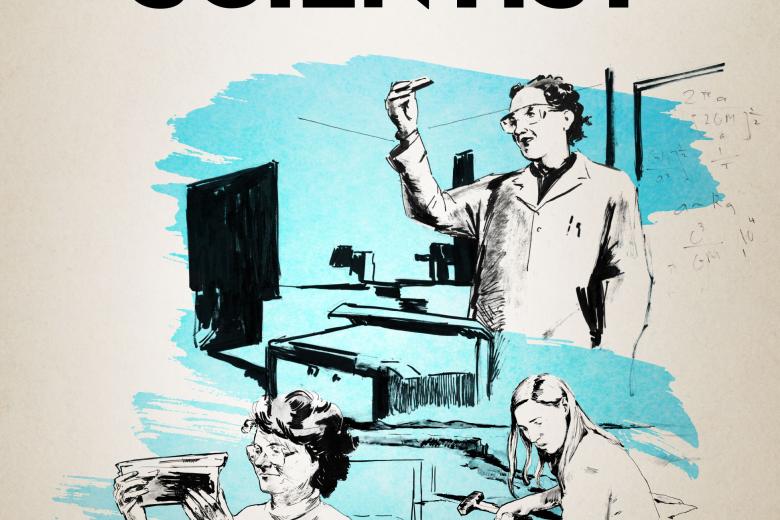
1 November 2021
The film showcased the migration story of a fleeing family from Afghanistan. For four years, filmmakers Hassan Fazili and Fatima Hossaini and their two young daughters were living in uncertainty as they tried to get asylum in Europe while documenting their eventful journey with only three smartphones. The documentary gives a first-person viewpoint on the danger, anxiety, and solitude the family experienced during their journey as challenges faced by many in the same difficult circumstances. Yet, it also shows their hope, strength, and ability to remain positive given their situation. The screening was followed by an insightful panel discussion about refugee and asylum conditions and the complicated government actions, institutions, and the pivotal role they play in migration. Taking the audience’s questions and remarks into consideration the event ended with further exchange and drinks at Lumière’s bar.
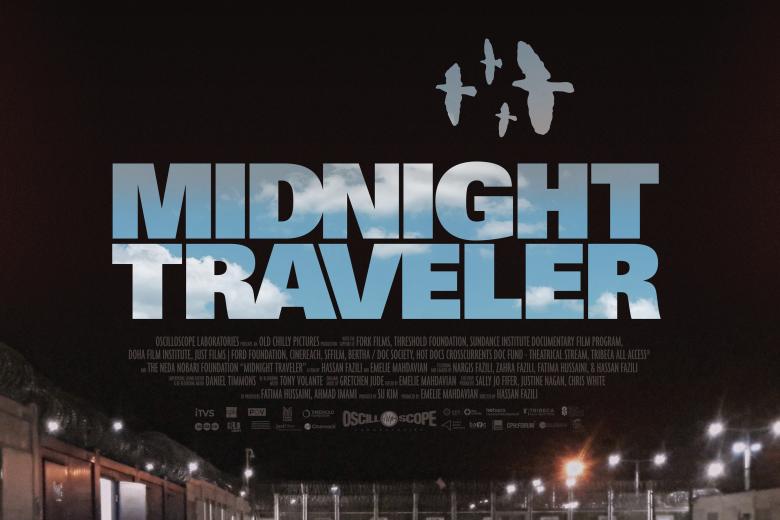
-
A Different Man2 Dezember 2024
-
Oeconomia7 October 2024
-
Eternal You6 May 2024
-
No Straight Lines: The Rise of Queer Comics23 October 2023
-
Tax Me if You Can22 May 2023
-
White Balls on Walls27 February 2023
-
Ich bin dein Mensch7 November 2022
-
How to Kill a Cloud16 May 2022
-
The Assistant21 February 2022
-
Picture a Scientist30 November 2021
-
Midnight Traveler1 November 2021
Impressions of past events
Growing Up in Science
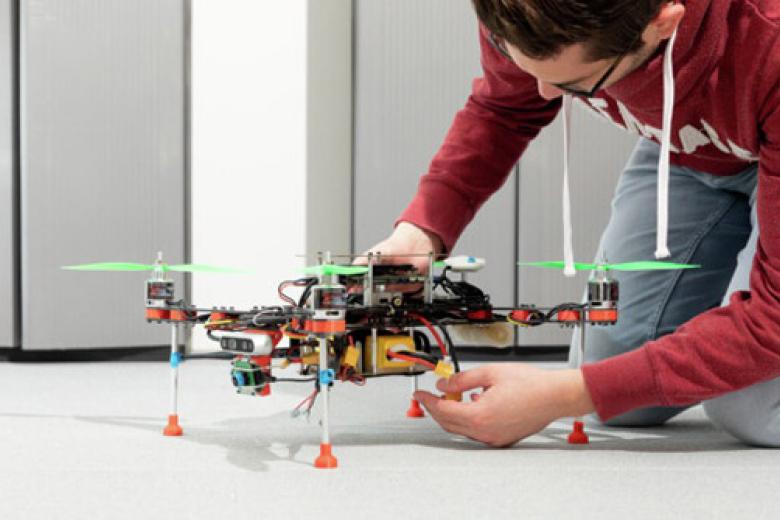
Interdisciplinary Grant
We stimulate interdisciplinary research with an annual grant for inter-faculty collaborations of junior academics.
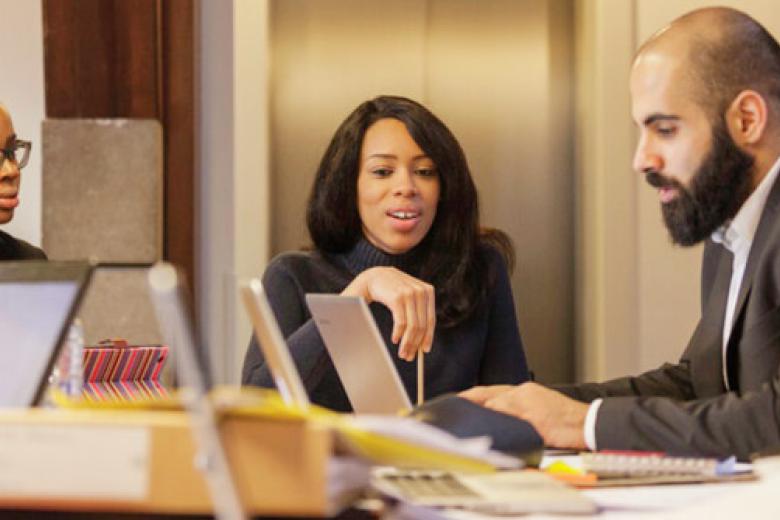
Internationalization
We advise on policy related to our university's international position and character, especially as it affects researchers.
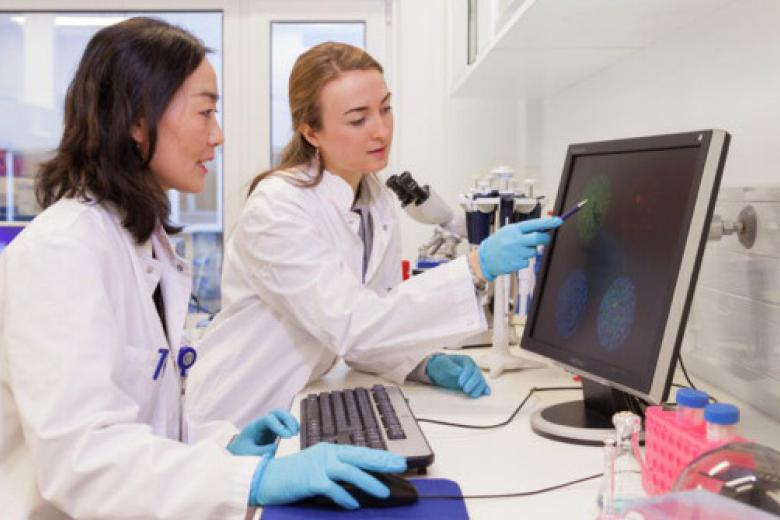
Lumière × MYA
We screen films for the public and hold panel discussions around some of the timeliest topics facing our society.
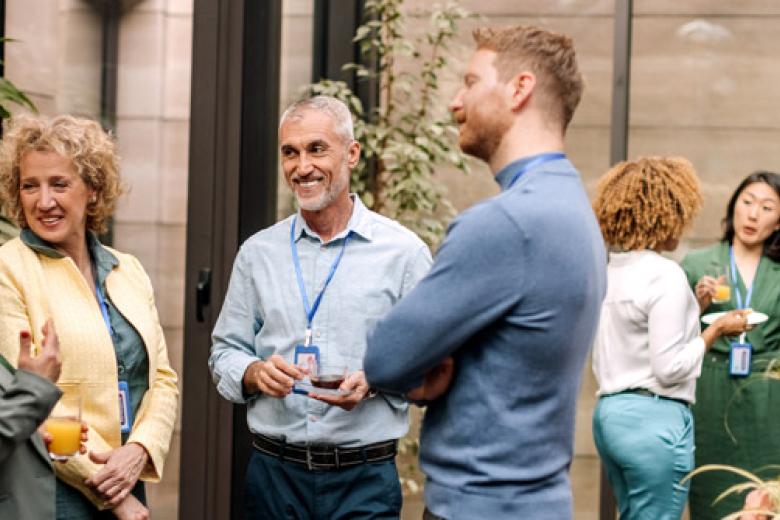
Outreach
We engage in dialogue with our community and the broader public through social media and outreach events.

Recognition & Rewards
We advise on the policy and implementation of the Recognition & Rewards (R&R) programme at UM and nationally.
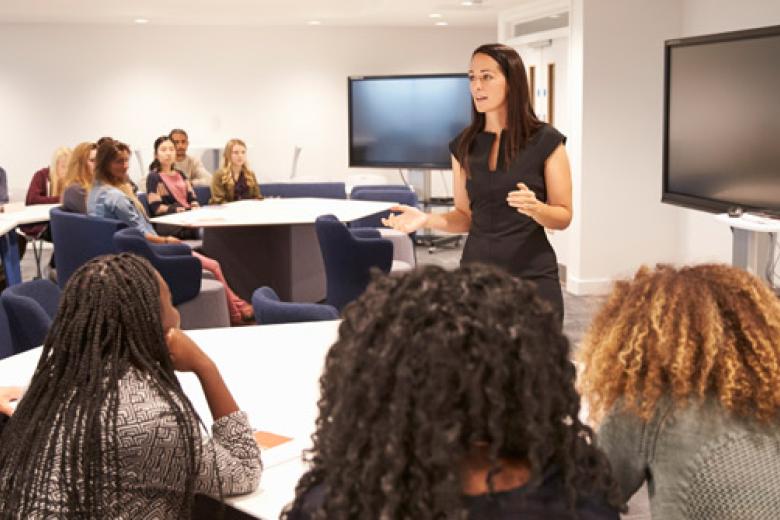
Social safety
Safety is a prerequisite for quality research and education. We aim to improve the working conditions related to social safety.

Trainings & workshops
We offer lectures, training, and workshops to our community on topics beyond our other projects.

Work pressure & well-being
We aim to highlight, discuss and improve the work pressure and working conditions related to social safety.

Climate Fresk Workshop for UM staff
Maastricht University celebrated its 47th Dies Natalis on Friday 27 January 2023, in the Sint Jans Church in Maastricht. Jazz and pop singer Wouter Hamel and guitarist Rory Ronde provided wonderful musical interludes. We listened to inspiring speeches and awarded the honorary doctorate, the Wynand Wijnen Education Prize, the Dissertation Prize and the Master’s Student Prizes. In the morning, several students had received the Bachelor’s Student Prizes.
We also surprised the outgoing mayor of Maastricht, Annemarie Penn-te Strake, with the presentation of the Tans Medal, UM's highest distinction. This year’s Dies Natalis was her last official academic ceremony as mayor.
Read more about the event
Enjoy a slideshow of pictures made during the event
Watch the videos of the 47th Dies Natalis
Find out all about this year's awards
Meet the winners of the 2022 Student Prizes
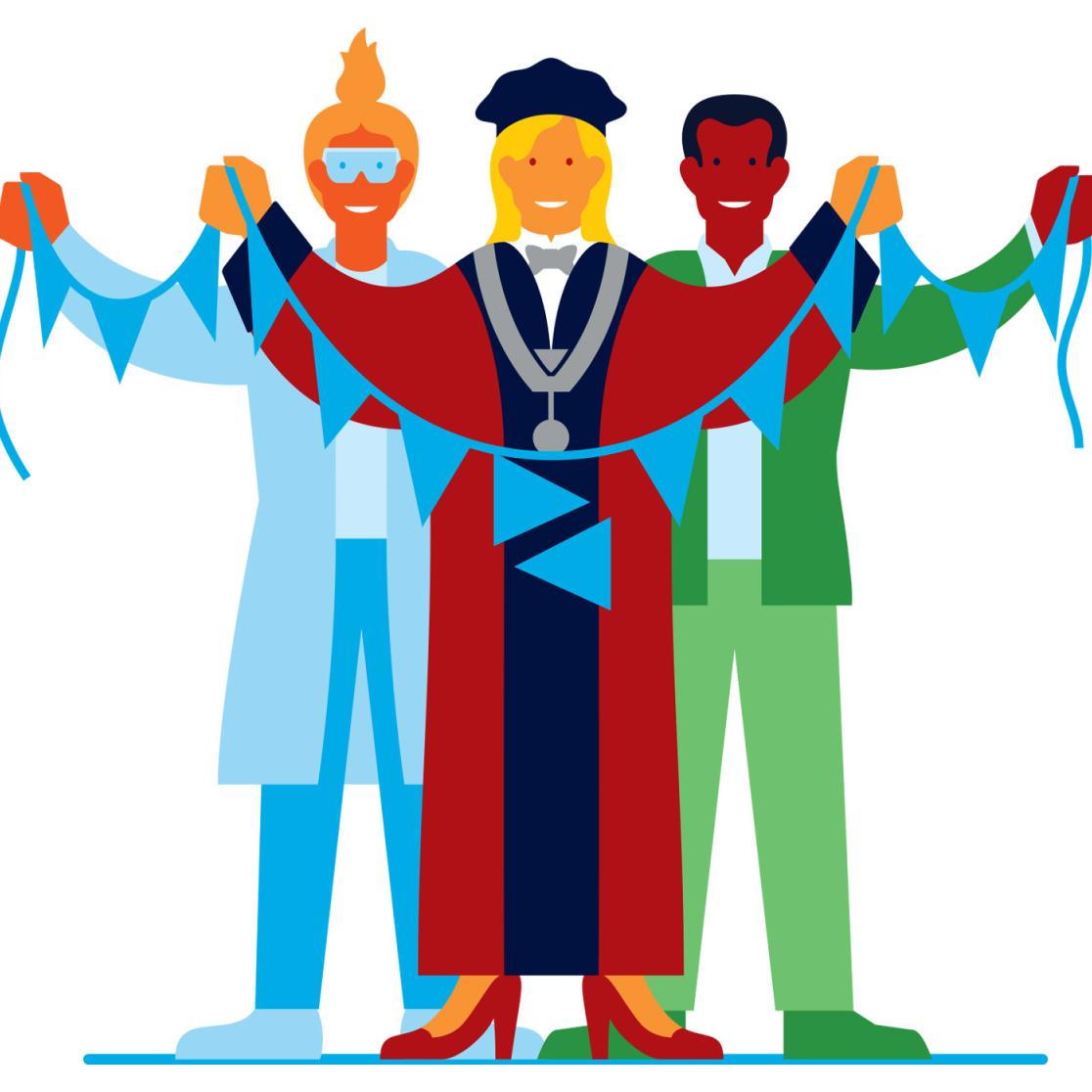
Bold yet prudent: technological innovation and society
Our rector, Prof. Pamela Habibović, kicked off the celebrations with a speech in line with this year’s theme: ‘Bold yet prudent: technological innovation and society’. She spoke about the importance of interdisciplinarity in science and technological innovation. “We stand on the event horizon of world-changing technological innovations – and we can’t afford to be naïve. We have to think through the potential threats and implications at the design stage already. Interdisciplinarity is a key to this.”
Prof. Robert S. Langer is living proof of that. He is known for his discoveries in tissue engineering and drug delivery. An interdisciplinary expert, he received an honorary doctorate at this Dies Natalis for his exceptional work. In his speech, he looked back on his difficult early years, but stressed that he never gave up: "I received a lot of criticism and was even named a bad scientist. Yet, together with my colleagues and students, I founded 40 companies to get our discoveries to patients. Today, our concepts have become the cornerstone of tissue engineering and regenerative medicine."
"We stand on the event horizon of world-changing technological innovations – and we can’t afford to be naïve."
Pamela Habibović, rector magnificus Maastricht University
Prof. Cyrus Mody of the Faculty of Arts and Social Sciences built on the importance of technological innovation in science in his keynote lecture on 'The Four Sciences'. His most important message: “The university can make a distinctive contribution to knowledge and innovation, but only if we work in healthy cooperation and sometimes healthy contestation with other sides that have their distinctive contributions to make.” He zoomed in on four forms of science and explained how they can work together: each doing what they do best while engaging with the others.
"The university can make a distinctive contribution to knowledge and innovation, but only if we work in healthy cooperation and sometimes healthy contestation."
Cyrus Mody, Professor in the History of Science, Technology, and Innovation
Impressions from the 47th Dies Natalis
Click the icon above to view the entire series.
Photos: Philip Driessen.
Video of the 47th Dies Natalis
Special award for mayor Annemarie Penn-te Strake
Executive Board chair Rianne Letschert presented this year's special Tans Medal to mayor Annemarie Penn-te Strake: only individuals who have made a significant contribution to the development of Maastricht University receive this medal. "Your belief in the power of a well-developed and internationalised university and its importance for our city and province is amazing. We shared the vision that Maastricht is not only a beautiful old city, but also a student city. With that, you were an excellent ambassador and advocate for Maastricht University", Letschert said.
Annual awards
This year's Wynand Wijnen Education Prize was presented to our entire education community in recognition of their tireless efforts, particularly during the recent COVID years. Donna Carroll and Martijn Boussé symbolically accepted the award. The prize money goes to the Emergency Fund for Students.
The annual Dissertation Prize went to Marie Labussière of the Faculty of Arts and Social Sciences for her thesis: 'Native-born but not yet citizen: Citizenship and educational outcomes of children of immigrants in the Netherlands.’
Student Prizes 2022
Bachelor's Student Prizes
Nineteen students completed their bachelor's degree in 2022 with a thesis that was labelled excellent by their faculty.
Master's Student Prizes
Nine students completed their master's programmes in 2022 with a thesis that was labelled excellent by their faculty.
